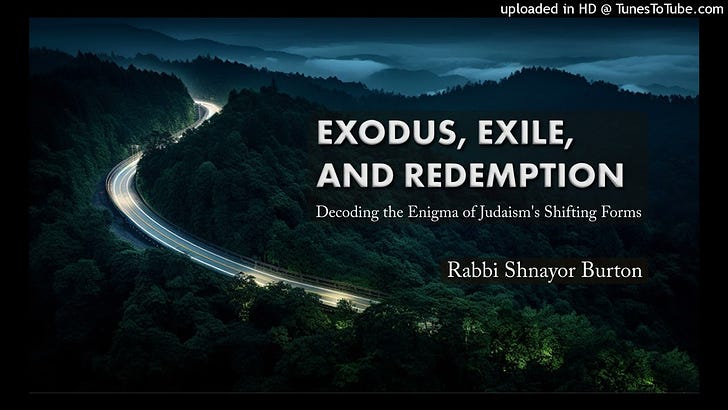EE & R, 2_4: Knowing Hashem: Knowledge in the Land
(For the previous installment of "Exodus, Exile and Redemption," click here. For ToC, click here.)
As we explored in the preceding chapter, knowledge of Hashem is intrinsically linked to the possession of a land. Before the Land of Israel was granted to the Children of Israel, their knowledge of Hashem remained vague.
Why does knowledge of Hashem require a land?
It is crucial to reiterate that knowing Hashem extends beyond merely mastering theoretical information. “Knowledge of Hashem” refers to an experiential understanding that generates a profound and intimate relationship.
To truly know Hashem is to become familiar with His ways, which are manifested in His wondrous world. Such familiarity can be attained only through a profound union, for one cannot fully comprehend in another that which does not also inhere within oneself.1 Therefore, to become fully acquainted with the world and its Creator, one must, in a sense, become an embodiment of the world entire. This is achieved by internalizing the characteristics of the world, often described as the characteristics of Hashem – He Who actively governs the world. It involves living in a way that mirrors the nature of the world. Through harmonious correspondence between humanity and the world, the world-soul can resonate in man himself.
Hence, the necessity for possession of a land becomes evident. A land provides the space for mankind to replicate, in their own sphere, the essence of Hashem’s world through founding a state in its image. This is why knowledge of Hashem is inseparable from the possession of a land.
The Nation of Israel requires a land for a singular purpose: to acquire knowledge of Hashem. As the prophet Jeremiah said, it is fitting to take pride in understanding and knowing Hashem “who acts with kindness, justice and righteousness in the land” (Jeremiah 9:23). To know Hashem signifies the internalization and emulation of His attributes within the domain of humanity, which is the land. The possession of a land, therefore, serves as a prerequisite for mankind’s greatest achievement. Through possessing a land, individuals can internalize and advance the very same goodness evident in the universe.
Kindness, justice, and righteousness are not merely values that are beneficial for the prosperity of a state; rather, they are the very highest purpose of a state’s existence.
A people devoid of a land of their own are hindered in their ability to fully experience the world. One who is prevented from practicing kindness cannot truly comprehend kindness; one who is denied the opportunity to exercise justice cannot completely grasp justice; and a people deprived of the means to establish a good society cannot fully appreciate the goodness that shapes the world itself.
We can genuinely know only that which we can put into practice and experience. This, too was articulated by Jeremiah:
Did not your father… do justice and righteousness? … He defended the cause of the poor and needy… Is that not what it means to know Me? (Jeremiah 22:16)
The truest measure of knowledge is action. Doing is knowing. One cannot know Hashem who doesn’t have, just as Hashem does, a world all of his own. Thus, Judaism’s great need for a state.2
(For the next installment of "Exodus, Exile and Redemption," click here.)
As mentioned in an earlier chapter, Adam’s carnal experience of Eve is called “knowing,” for true knowledge (da’as) is achieved through union.
For more on this topic, see my book, Ha’Aretz asher Ar’eka, pgs. 156-169.



Beautiful explanation. It's so important - especially now - to understand the significance of the Land of Israel in the Jewish experience. We must reach beyond war and politics, toward the spiritual messages of Natural Israel.
I'm also developing now a series of posts on this subject for The Healthy Jew. It seems we're going in similar directions. Looking forward to reading more of your insights.